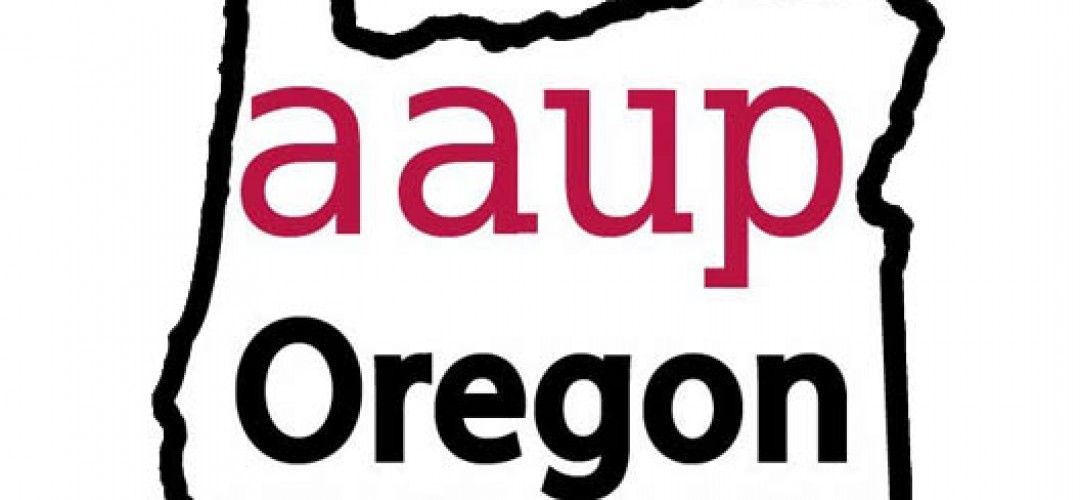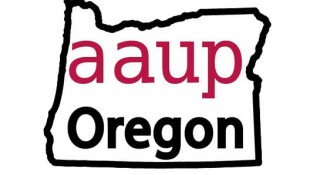Urgent Support Needed for Faculty Governance and Labor Rights in Oregon

Friends and colleagues of AAUP Oregon:
Regrettably, I share another very disturbing example of scattershot legal assertions by university and anti-union lawyers trying to defend the unlawful behavior of their administration. I ask that you please sign the petition asking Governor Kate Brown to correct the course, as explained in detail below.
In May 2020, the Oregon Employment Relations Board (ERB) ruled that Oregon State University violated Oregon law (ORS 243.670(2)(a)) by knowingly distributing anti-union claims to faculty. After losing this case in the ERB, the OSU administration appealed to the Oregon Court of Appeals with the support of presidents from the other public universities in Oregon. In this appeal, they are making the absurd claim that sending out administration-crafted anti-union FAQs to select faculty is a form of shared governance. Let’s be clear, sending out an administration-crafted FAQ, with errors and misleading claims, to faculty is not shared governance. As further detailed in the AAUP amicus curiae (available here), “the OSU’s FAQs were not open and honest communications, an element that is essential to creating clearly structured and meaningful shared governance…” nor were these FAQs shared, as the “OSU administration controlled both the questions and the answers.”
As cited extensively in the amicus brief, and as supported by evidence presented at the ERB: “the AAUP can state, with great confidence, that OSU’s FAQs did not constitute shared governance, nor does the ERB’s decision threaten the shared governance process in any way. Rather OSU’s baseless argument is nothing more than a post-hoc attempt to use shared governance as a rationalization for its unlawful conduct under Oregon state law.” Shamefully, the OSU administration, with support by presidents at Oregon’s six public universities, misrepresented the most basic interpretation of shared governance (even citing the AAUP’s 1966 Statement on Government) to argue that they could engage in unlawful anti-unionization conduct. Perhaps worse, they are doing this as leaders of our most hallowed institutions of knowledge, truth, and integrity.
I encourage you to consider the scope of this case and sign our petition: Oregon university presidents are allowing their names and offices to appear alongside an argument that falsely claims that shared governance is under threat by the ERB’s decision to uphold Oregon law that protects the labor rights of faculty – indeed, of all workers. Unfortunately, as the AAUP amicus states, the lawyers working for OSU are “seeking to use shared governance as a cover for its unlawful conduct of creating and disseminating the FAQs in an effort to influence individual faculty members’ views about unionization.”
That the presidents at many of our public universities in Oregon have decided to seek the counsel of Jeffrey P. Chicoine, associated with the firm of Miller Nash Graham & Dunn LLP, may explain the distortions behind this anti-faculty legal position and clear anti-union stance. Their law firm has notoriously worked with employers throughout our state to push K-12 educators, university faculty, and private sector employees into heightened conflict rather than facilitate proactive resolution. Instead of working to accentuate and improve on faculty governance with faculty partners, their unions, and university channels of shared governance, the lawyers seem more intent on cultivating behaviors characteristic of bad bosses, not professional colleagues.
I ask that you join AAUP Oregon in urging Governor Kate Brown to remind university leaders of the importance of Oregon labor rights and faculty shared governance by signing this petition. University leaders can begin by reconciling anti-union sentiments in their ranks (including ending relations with these very expensive anti-union lawyers), challenging the groupthink among the upper echelons of their administrations with more open and diverse thinking, and acknowledging the determination of Oregon labor law as it aligns with the realities of the institutions where they are employed.
Yours in solidarity,
Michael Dreiling
President
AAUP Oregon
Pedro García-Caro
Vice President, Academic Freedom & Governance
AAUP Oregon

